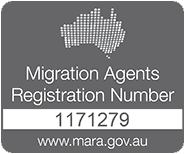
Many would-be visa applicants are disappointed this week after Queensland and Western Australia released their new State Migration Plans for 2015-16. Several occupations have been removed from the respective lists, reflecting a slowing in demand for certain occupations in Australia as the economy contracts from the highs of the last five years.
Queensland has a new occupation list for people currently working in Queensland; and another occupation list for people outside the State. For people not already in Queensland, the options are mainly in regional areas for the 489 provisional visa, apart from a few highly sought after occupations.
In Western Australia, “Schedule 2” features prominently in the WA 2015- 16 State Migration Plan – meaning a job offer is required in order to become sponsored.
Why is it so jolly complicated??
The process of getting a skilled visa in Australia requires a number of steps – skills assessment, English testing, state sponsorship, expression of interest, and visa application. All of these steps take time. And, as I explained in my recent article about Swiss cheese theory , it can be a “once in a lifetime” opportunity when the ducks are in a row.
Just as easily, a duck can step out of the line – and that’s what has just happened to all of those hairdressers planning to apply for Queensland for 489 sponsorship; and mechanics hoping to be sponsored by Western Australia. These people are now pretty much restricted to a job offer in order to get a visa. Many would-be applicants are in the middle of skills assessments and other processes – and now are wondering about Plan B.
While it requires luck to make a visa grant notice enter your email box; good initial strategy and execution is necessary too. It can be hard to do this on your own, because there are so many,ever-changing variables.
If you’re thinking about migrating on the basis of your skill, there are many ways that a registered migration agent can help you to speed up the process so you can try to beat the changes.
1. Proper, customised migration advice before starting the process.
There’s no substitute for a structured advice session from a registered migration agent before you commence. It needs to be proper advice based on your individual situation, not general advice. Many agents offer a free initial consultation, but in order to properly advise, an agent needs to spend some time looking at your individual case, and will probably charge money for that. “Advice” does not constitute getting various bits of information from people on Facebook, including migration agents, and piecing it all together into a jigsaw puzzle for yourself. That is risky, because what works for one person will not necessarily work for you. And when you put a question on to a forum, you’re not necessarily giving the information away which would enable a professional to advise properly. So beware, and understand the difference between well-meaning “I-did-it-myself-and-you-can-too” comments; and “general information, which is somewhere in the public domain (eg DIBP website)” versus case-specific, considered, professional advice. Because you may only get one shot at it, can you afford not to get advice?
2. Migration Agents keep up to date with changes.
Registered agents keep a professional library and subscribe to real time updates in legislation and policy. So, an agent will sometimes (but not always) know about upcoming changes; but in any case should be aware of changes as soon as they happen.
3. Migration Agents keep the ball in motion.
The key to a successful outcome is to work concurrently, not consecutively. Don’t wait until your skills assessment result arrives before doing your English test. Make use of the down time while you are biting your nails waiting. There are lots of components being managed by Emergico’s migration agents behind the scenes while waiting for outcomes – and that in turn makes the whole process quicker.
4. We can explore alternatives.

If Plan A is not going to work now, it’s time to think about Plan B. Sometimes when one door closes, another one opens.
Contact Emergico to talk confidentially about your case. We are in the business of creating new Australians!!




